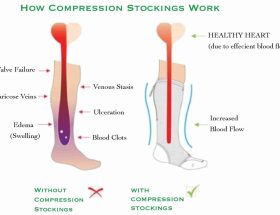Weight loss is not solely about the physical aspects of dieting and exercise. The psychological factors that come into play are often overlooked but are equally important when it comes to achieving successful and sustainable weight loss. In this article, we will explore some key psychological factors that can contribute to a person’s success in achieving their weight loss goals.
Motivation and Goal Setting
One of the key psychological factors in successful weight loss is motivation. Without a strong and lasting motivation, it can be difficult to stick to a weight loss program. Motivation provides the drive and determination to overcome challenges and setbacks along the way. Setting realistic and achievable goals is also crucial in maintaining motivation. By breaking down the weight loss journey into smaller milestones, individuals can experience a sense of achievement more frequently, boosting their overall motivation.
Self-Efficacy and Confidence
Self-efficacy relates to an individual’s belief in their ability to successfully accomplish a task. In the context of weight loss, self-efficacy plays a significant role in maintaining healthy behaviors and making positive choices. People with higher levels of self-efficacy are more likely to stick to a weight loss plan, while those with low self-efficacy may easily become discouraged and give up. Building self-efficacy can be achieved through small victories, positive self-talk, and surrounding oneself with supportive individuals.
Emotional Eating and Mindfulness
Many individuals struggle with emotional eating, using food as a coping mechanism for dealing with stress, sadness, or boredom. Overcoming emotional eating is crucial in successful weight loss. Mindfulness practices, such as meditation and deep breathing exercises, can help individuals become more attuned to their emotions and identify triggers for emotional eating. By developing alternative coping mechanisms and addressing the underlying emotional issues, individuals can break free from the cycle of emotional eating and make healthier choices.
Behavioral Change and Habit Formation
Successful weight loss requires replacing old, unhealthy habits with new, healthier ones. This process involves behavioral change and habit formation. Breaking down the behaviors that contribute to weight gain, such as excessive snacking or lack of physical activity, and replacing them with healthier alternatives is essential. It is important to recognize that behavior change takes time and effort. Setting realistic expectations and celebrating small wins can help individuals stay committed to the process of habit formation.
Social Support and Accountability
Having a strong support system is crucial in achieving successful weight loss. Social support can provide encouragement, guidance, and accountability. By involving friends, family, or joining a support group, individuals can benefit from shared experiences and receive emotional support during the ups and downs of their weight loss journey. Accountability can be established through regular check-ins with a trusted friend or using apps that track progress and provide reminders.
Body Image and Self-Acceptance
Weight loss is often associated with a desire to achieve a certain body image. However, a healthy body image and self-acceptance are important psychological factors in successful weight loss. It is essential to focus on overall health and wellbeing rather than striving for an unrealistic ideal. Building a positive body image and practicing self-acceptance can enhance self-esteem and lead to a more balanced and sustainable approach to weight loss.
Conclusion
When it comes to weight loss, focusing solely on the physical aspects may yield temporary results. Incorporating psychological factors into one’s weight loss journey is essential for long-term success. Motivation, self-efficacy, mindfulness, habits, social support, and body image all play a pivotal role in achieving and maintaining a healthy weight. By recognizing and addressing these psychological factors, individuals can create a holistic approach to weight loss and improve their overall wellbeing.







